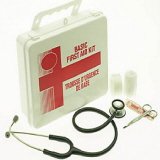|
Open Mind,Eating For Life-'Obesity' and what to do about it.

Obesity
* We know that obesity is associated with high blood pressure, see our related article for hypertension high blood cholesterol, diabetes, see this article for more information high blood cholesterol, diabetes, heart disease, and stroke, Extreme obesity has also been linked to several cancers. This means that if you are obese, losing weight may reduce your chances of developing these serious diseases or conditions. If you already suffer from hypertension and are overweight, weight loss alone can often lower your blood pressure to normal levels. Because fat (both saturated and unsaturated fat) provides more than twice the number of calories provided by equal weights of carbohydrate or protein, decreasing the fat in your diet may help you lose weight as well as help reduce your risk of cancer and heart disease. Today, most Europeans and Americans get about 37 percent of their daily calories from fat.Open Mind,Eating For Life-Obesity and many experts suggest that fat should be reduced to 30 percent or less of calories. Open Mind,Eating For Life-Obesity and Heart Disease.
* We know that high blood cholesterol increases your risk of heart disease, especially as it rises above 200 mg/dl (milligrams of cholesterol per deciliter of blood). The evidence is clear that elevated cholesterol in the blood, resulting in part from the foods we eat and in part from cholesterol made in the body, contributes to the development of atherosclerosis, a disorder of arteries that results in their narrowing and in reduced blood circulation. This condition can lead to a heart attack or stroke.
* We know that blood cholesterol levels are greatly influenced by the amount of saturated fat and cholesterol found in many of the foods we eat. These raise blood cholesterol levels. (Of the two, saturated fat seems to be the major dietary factor which affects blood cholesterol.) To reduce your blood cholesterol level, it is important to eat less saturated fat and cholesterol. Saturated fat and cholesterol are often found together in foods. Saturated fat in the U.S. diet is provided primarily by animal products such as the fat in meat, butter, whole milk, cream, cheese, and ice cream. There are a few vegetable fats--coconut oil, cocoa butter, palm kernel and palm oils which are also high in saturated fat. Cholesterol is found only in animal products eggs, meat, poultry, fish and dairy products. Plant foods such as vegetables, grains, cereals, nuts, and seeds do not contain cholesterol. A few foods are high in cholesterol but relatively low in fat--for example, egg yolks and liver. Open Mind Eating For Life thinks we should Watch out for items in the grocery store that are labeled no cholesterol or, contains no animal fat." They may still contain a large amount of fat or saturated fat. Examples are peanut butter, solid vegetable shortening, nondairy creamer, and baked products like cookies, cakes, and crackers. For people trying to lose blood cholesterol level, these foods should be chosen less often. * We know that substituting unsaturated fatty acids (which are usually liquid and usually come from plant sources) for saturated fats can help reduce high blood cholesterol. Safflower, corn, soybean, olive, and canola oils are major sources of unsaturated fats. The omega-3 fatty acids which are found in fish and seafood, may have a favorable effect on blood fat and reduce the risk of heart disease. No one is sure yet.
Return to Open Mind Health
|





 Open Mind,Eating For Life-Obesity believes there is much still to be learned
about the relationship between the foods we eat and our risk of getting cancer and heart disease. Many different health agencies are conducting a great deal of research to find out more about this relationship. There is,however, a lot that we know now. The relationship of diet to
cancer and the relationship of diet to risk factors for heart
disease are summarized below:
Open Mind,Eating For Life-Obesity believes there is much still to be learned
about the relationship between the foods we eat and our risk of getting cancer and heart disease. Many different health agencies are conducting a great deal of research to find out more about this relationship. There is,however, a lot that we know now. The relationship of diet to
cancer and the relationship of diet to risk factors for heart
disease are summarized below:






